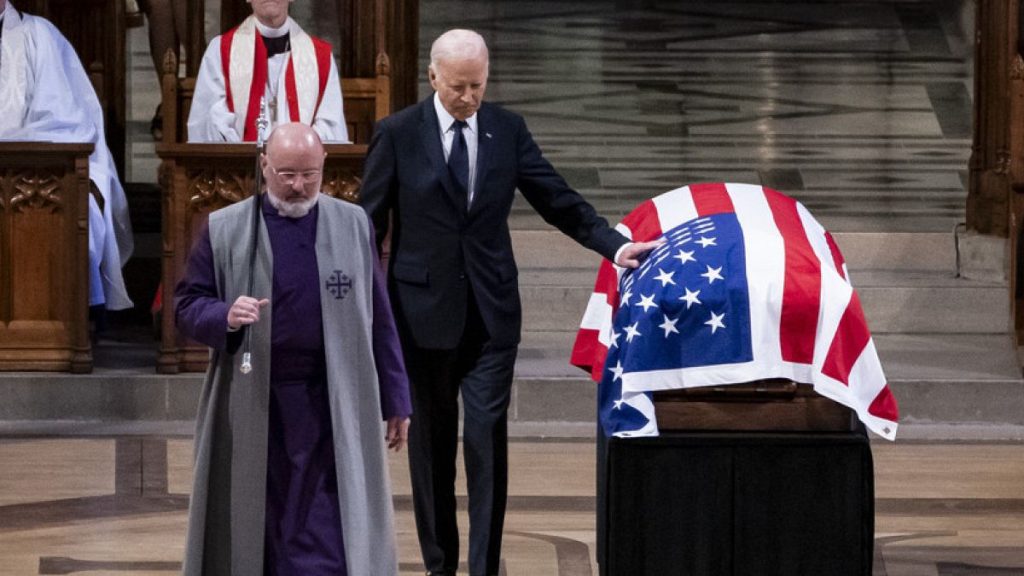The nation bid farewell to former US President Jimmy Carter, a man of unwavering character and principle, in a poignant state funeral held at the National Cathedral in Washington D.C. The solemn occasion drew together a rare assembly of current and former presidents, transcending political divides in a shared tribute to the 39th president’s life and legacy. Foreign dignitaries, including Canadian Prime Minister Justin Trudeau and UN Secretary-General Antonio Guterres, joined the American leaders in honoring Carter’s impact on both domestic and global affairs. The gathering underscored the profound respect Carter commanded across the political spectrum, a testament to his commitment to service and his enduring values.
The funeral service was a tapestry of somber reflection and heartfelt celebration of Carter’s life. The presence of all living former presidents, along with President Joe Biden and Vice President Kamala Harris, created a powerful visual representation of the continuity of American leadership. Despite the political differences that often characterize the relationships between these figures, the shared moment of mourning demonstrated a unity of purpose in honoring a president who dedicated his life to public service. The image of former rivals, such as Donald Trump, Hillary Clinton, and Kamala Harris, gathered in shared respect underscored the unifying power of Carter’s legacy.
President Biden, entrusted with delivering the eulogy, offered a deeply personal and moving tribute to his predecessor. He recounted their decades-long friendship, which began in 1974 when Biden, then a young senator, became the first outside of Georgia to endorse Carter’s presidential bid. Biden emphasized Carter’s unwavering character as the foundation of their bond and the driving force behind his presidency. He highlighted Carter’s enduring attributes – character, character, character – as the qualities that drew him to support the then-governor of Georgia. The eulogy served not only as a farewell to a friend but also as a powerful affirmation of the values Carter embodied.
Biden’s words painted a portrait of a man driven by principle, not power. He spoke of Carter’s commitment to treating everyone with dignity and respect, his courage in standing up to injustice, and his unwavering faith in the best of humankind. These principles, Biden shared, were not merely political stances but deeply held personal beliefs that shaped Carter’s life and influenced his own. The president acknowledged that Carter was often misunderstood and underestimated, dismissed as a relic of a “bygone era,” yet his vision and accomplishments were far ahead of his time.
The eulogy served as a corrective to the historical narrative surrounding Carter’s presidency, highlighting his significant contributions to civil rights, peace negotiations, nuclear non-proliferation, conservation, and clean energy. Biden emphasized Carter’s forward-thinking approach and challenged the perception that he was out of touch with the times. He presented Carter as a visionary leader who anticipated the challenges of the future and worked tirelessly to address them, even in the face of criticism and doubt.
The funeral concluded with a final, poignant moment as Biden, visibly moved, paused before Carter’s casket, gently resting his hand upon it in a silent gesture of farewell. The casket, draped in the American flag, was then carried from the cathedral, embarking on its final journey to Plains, Georgia, Carter’s hometown and final resting place. There, in the small town where he was born, raised, and lived much of his life, he was laid to rest beside Rosalynn, his wife of 77 years, bringing a quiet and fitting close to a life dedicated to service, principle, and unwavering faith. The private burial ceremony, attended by family and close friends, marked the end of a chapter in American history, but the legacy of Jimmy Carter, a man of character and conviction, continues to inspire and resonate.














